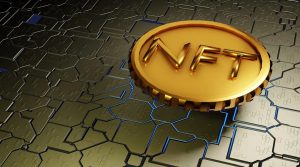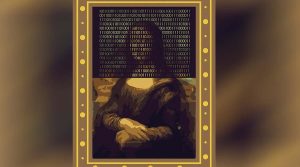In recent years, the rise of non-fungible tokens (NFTs) has brought significant changes to various industries. One of the sectors experiencing a transformative impact is the music industry. NFTs have opened up new avenues for musicians to connect with their audience, monetize their work, and regain control over their art. This article explores the power of NFTs in empowering musicians and revolutionizing the music industry.
What are NFTs?
NFTs, or non-fungible tokens, are unique digital assets that are stored on a blockchain. Unlike cryptocurrencies such as Bitcoin or Ethereum, which are interchangeable, each non-fungible tokens possesses distinct characteristics and cannot be replicated or replaced. These tokens represent ownership or proof of authenticity for a particular item, whether it be artwork, collectibles, or in this case, music.
How do NFTs work?
Here’s a simplified step-by-step breakdown of how NFTs work:
- Creation: An artist or creator mints an non-fungible tokens by uploading their digital content, such as artwork, music, videos, or other digital media, to an NFT marketplace or platform. This process involves attaching unique metadata, including information about the asset, ownership details, and any associated terms or conditions.
- Blockchain Verification: The NFT is then recorded on the blockchain, creating a permanent and transparent record of ownership and transaction history. Ethereum’s blockchain, for example, uses smart contracts to handle the creation and management of non-fungible tokens.
- Ownership and Authenticity: The blockchain acts as a decentralized ledger that verifies and confirms the ownership and authenticity of the non-fungible token. This verification ensures that the NFT is unique and cannot be duplicated or tampered with.
- Trading and Transactions: Once minted, non-fungible token can be bought, sold, or traded on various non-fungible tokens marketplaces or platforms. These transactions occur using cryptocurrency, typically Ethereum, and are facilitated by the underlying blockchain technology. Each transaction is recorded on the blockchain, allowing for transparency and traceability.
- Royalties and Smart Contracts: One notable feature of non-fungible token is the ability for creators to include smart contracts that automatically trigger royalty payments to the original creator whenever the non-fungible token is resold in the secondary market. This provides ongoing revenue for artists even after the initial sale.
- Interoperability and Utility: non-fungible token can have additional utility beyond simple ownership. They can be used to access exclusive content, participate in virtual experiences, or unlock special privileges within digital ecosystems.
Non-fungible token have gained significant popularity due to their ability to provide verifiable ownership and scarcity in the digital world. They offer a new way for creators, including musicians, artists, and content creators, to monetize their work and engage with their audience in innovative ways.
NFTs in the Music Industry
The integration of non-fungible token into the music industry has unlocked numerous opportunities for artists to engage with their fans and reshape traditional revenue models.
Music Ownership
With non-fungible token, musicians can establish a direct connection with their audience by offering unique and limited-edition digital collectibles. Fans can purchase non-fungible token representing exclusive music releases, special editions, or even virtual experiences. This direct ownership strengthens the relationship between artists and fans, fostering a sense of community and loyalty.
Direct Artist-Fan Interaction
Non-fungible token enable musicians to provide unprecedented access to their creative process and personal experiences. Through exclusive content, behind-the-scenes footage, or virtual meet-and-greets, artists can engage with their fans on a more intimate level. This direct interaction helps bridge the gap between musicians and their audience, creating a deeper sense of appreciation and support.
Royalties and Revenue
Traditionally, musicians have relied on streaming platforms and record labels to generate revenue from their music. NFTs introduce alternative monetization methods. By minting and selling NFTs, artists can retain a more significant portion of the revenue, reducing their reliance on intermediaries. Additionally, NFTs can include smart contracts that automatically distribute royalties to artists whenever their work is resold, ensuring ongoing revenue streams.
Benefits of NFTs for Musicians

The adoption of NFTs brings several benefits that empower musicians and enhance their creative journey.
- Creative Control: NFTs enable artists to maintain complete creative control over their music. They can decide how their work is presented, packaged, and released as digital collectibles. This newfound control allows musicians to experiment with different formats, collaborate with visual artists, and explore unique ways of storytelling.
- Monetization Opportunities: By leveraging NFTs, musicians can unlock new monetization opportunities beyond traditional revenue streams. Artists can sell exclusive rights to their music, offer virtual concert experiences, or create limited-edition merchandise tied to their NFT releases. These innovative revenue models provide artists with additional income streams and the freedom to explore their artistic endeavors.
- Fan Engagement: NFTs foster a deeper connection between musicians and their fan base. Fans who purchase NFTs become part of an exclusive community, gaining access to perks, rewards, and interactions that are not available to the general public. This elevated fan experience strengthens the bond between artists and their supporters, cultivating a passionate and dedicated fan base.
Challenges and Concerns
Certainly! Here are the challenges and concerns associated with the integration of Non-fungible token in the music industry:
- Environmental Impact: The energy consumption associated with blockchain technology, on which non-fungible token are built, has raised concerns about its environmental impact. The high energy consumption of certain blockchain networks needs to be addressed to minimize the carbon footprint of the music industry.
- Copyright Infringement: The digital nature of non-fungible token has sparked concerns regarding copyright infringement. Artists need to ensure the proper attribution and protection of their work to prevent unauthorized duplication or distribution of their music. Establishing clear guidelines and mechanisms to safeguard artists’ intellectual property rights is crucial.
- Accessibility: non-fungible token primarily exist in the digital realm, which can pose accessibility challenges for some individuals. Limited internet access or technological resources may hinder certain audiences from fully participating in the non-fungible token ecosystem. It is important to consider inclusivity and ensure that the benefits of non-fungible token are accessible to a diverse audience.
Addressing these challenges is essential to ensure the sustainable and responsible integration of non-fungible token in the music industry. By finding solutions that mitigate environmental impact, protect artists’ rights, and promote inclusivity, the full potential of non-fungible token can be harnessed while minimizing negative consequences.
NFTs and the Future of the Music Industry
The integration of NFTs represents a paradigm shift in the music industry, offering new possibilities for artists and reshaping the way music is created, shared, and monetized. As technology continues to advance and blockchain becomes more prevalent, NFTs are poised to play an increasingly significant role in empowering musicians and revolutionizing the music industry.
NFTs provide musicians with unique opportunities to engage with their fans, monetize their work, and maintain creative control. The direct interaction between artists and their audience, facilitated by NFTs, creates a deeper sense of connection and loyalty. Musicians can offer exclusive content, limited editions, and virtual experiences, which were previously unavailable through traditional channels.
Moreover, NFTs introduce alternative revenue models, reducing artists’ reliance on intermediaries such as streaming platforms and record labels. By minting and selling NFTs, musicians can directly benefit from the sale of their work and retain a more significant portion of the revenue. Smart contracts embedded within NFTs also enable automatic royalty distribution, ensuring ongoing income streams as NFTs are resold in the secondary market.
The potential of NFTs goes beyond financial gains. They provide artists with a platform to showcase their creativity, experiment with new formats, and collaborate with other artists. NFTs offer a means for musicians to express their unique visions and connect with fans on a more intimate level, fostering a community around their work.
As the music industry continues to embrace NFTs, we can expect to see further innovation and adoption. Artists will explore new ways to leverage the technology, creating immersive experiences and expanding the boundaries of what it means to be a musician in the digital age.
Conclusion
NFTs have emerged as a powerful tool for musicians, providing them with creative control, monetization opportunities, and enhanced fan engagement. While challenges exist, such as environmental concerns and copyright protection, the potential benefits of NFTs in the music industry cannot be overlooked. As artists continue to explore this innovative space, NFTs have the potential to reshape the industry, enabling a more direct and sustainable relationship between musicians and their audience.
FAQs
1. Can anyone create an NFT for their music?
Yes, artists can create NFTs for their music by minting them on blockchain platforms that support NFT functionality.
2. How do NFTs benefit musicians financially?
NFTs provide musicians with additional revenue streams, higher royalty percentages, and the ability to sell exclusive content directly to fans.
3. Are NFTs limited to established musicians only?
No, non-fungible token can be utilized by both established and emerging musicians as a means to connect with their audience and generate income.
4. Are there any risks associated with buying non-fungible tokens of music?
There is a risk of counterfeit or unauthorized non-fungible token in the market. Fans should ensure they purchase from reputable sources and verify the authenticity of the non-fungible token before making a purchase.
5. How can non-fungible tokens enhance the fan experience?
NFTs allow fans to own unique digital collectibles, gain access to exclusive content, and engage with their favorite artists through personalized experiences, fostering a deeper connection.






